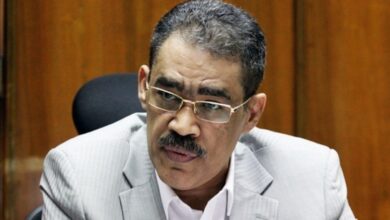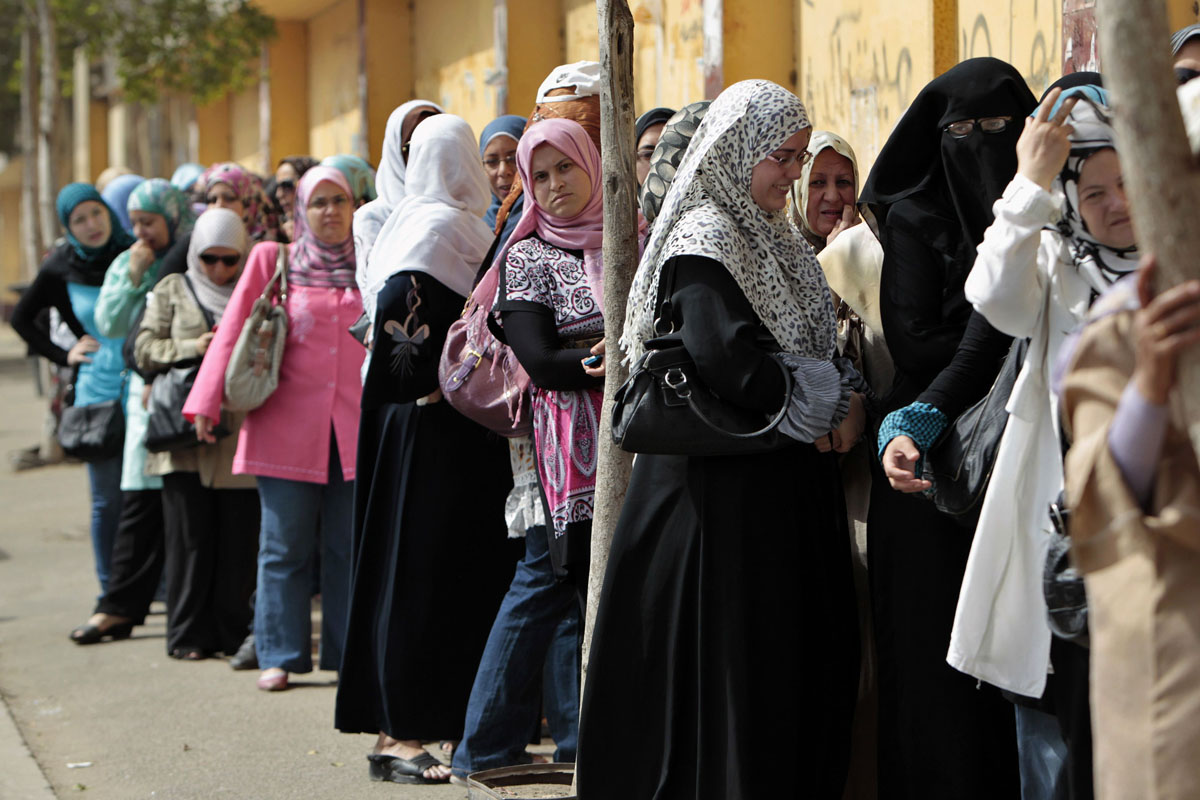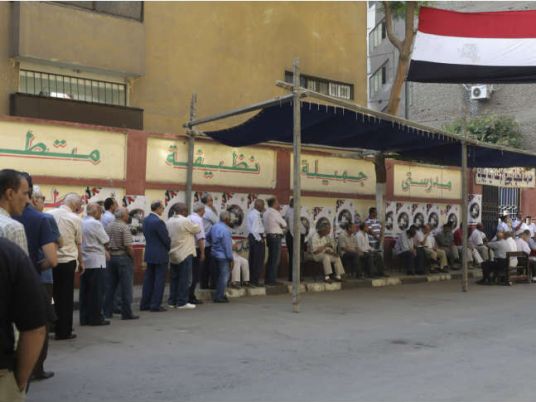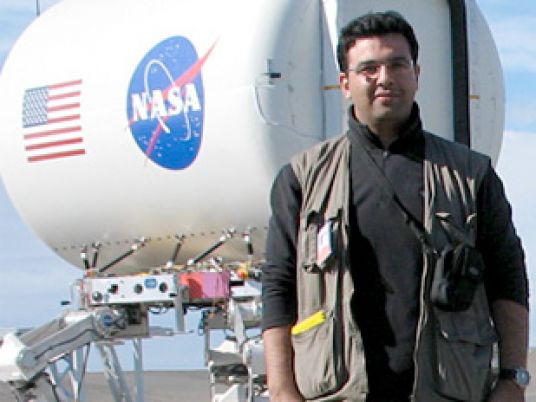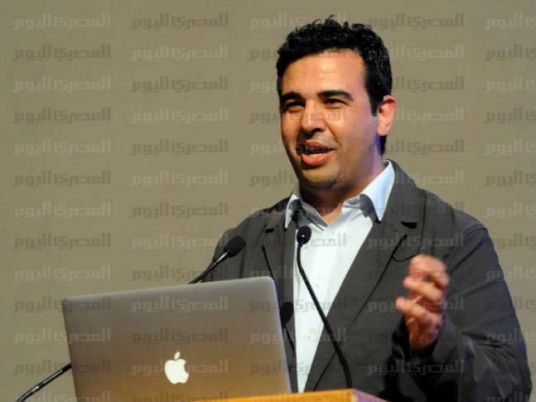
In an interview with Al-Masry Al-Youm, Essam Heggy of NASA, the former scientific affairs adviser to President Adly Mansour, spoke of Egyptian affairs and how the world looks at Egypt.
Q: How do you think the regime and the people deal with social problems?
A: What bothers me the most is a naive perception of issues. We have a naive perception of democracy, patriotism, politics and science. There are people who believe democracy is a ballot box in which you place your vote. Others believe patriotism is to write songs in love for the homeland. We all love our country, but we do not realize that true love is to work hard and with dedication.
Also, instead of focusing on rebuilding the country, we keep fighting each other and accusing each other of treason after the 30 June revolution. What should have happened after that date is a national unity against the real enemy of Egypt, which is not terrorism; it is poverty, disease and ignorance. This is the fertile soil from which terrorism stems. In order to eliminate terrorism, we have to fight poverty, disease and ignorance. Egypt is acting haphazardly. And haphazard does not eliminate terrorism. It feeds it.
Q: You mentioned a naive perception of democracy. Do you not believe Sisi was elected according to a democratic system?
A: In the absence of education, do not talk to me about democracy. Democracy needs educated people who are well aware of what is happening in Egypt.
People in Egypt base their votes on love and hate emotions, not on electoral programs. We ask ourselves who should rule Egypt, whereas we should ask ourselves who has the ability to bring real change.
Q: Why did you leave NASA to work as adviser to the president?
A: I had hopes to make a difference and contribute to the advancement of this country. I do not regret it because I was working on a number of important issues that I think the officials are continuing now, including the development of a strategy for education and the Nile water issue. By the way, I was not paid a single penny for my work. I paid for my hotel accommodation because I do not have a house in Cairo. That is why I was disappointed when I was accused of betrayal when I said the armed forces virus C device was a hoax.
Q: From NASA to Ettehadiya, what can you tell us about this shift?
A: I worked in the distant planets department at NASA, the most elite department. The difference between my office in NASA and my office in the Ettehadiya Presidential Palace was not in the technology I used but in the brains I dealt with.
All the people I worked with were nice and faithful but did not have the tools. And there was no coordination whatsoever. Sometimes I felt I was dealing with aliens like those we see in science fiction movies. I could not believe that those people were part of the decision-making process in Egypt.
Q: The deadline for announcing the results of the armed forces' hepatitis C device has ended without us knowing anything about it. What do you make of that?
A: No one will tell us anything because it is a shameful hoax.
Q: The device is a hoax or the way it was presented?
A: The whole way a country of the size of Egypt dealt with science. It was an insult to science and to the Egyptian people. It proved how backward the brains of our institutions are. It was a scandal for the president and the ministers to watch a man playing with the feelings of the sick and their hopes to get cured. More shameful were the media and the scientists who defended this.
Q: Which scientists?
A: I will not mention names, but unfortunately they are very big names in the scientific and academic spheres, such as heads of universities and heads of departments. I was not exaggerating when I said it was a scandal in the scientific community.
Q: Might they have had a point?
A: They wanted to pay compliments to the armed forces. They should have all been dismissed from office. How can people like this teach students?
Q: But it is a medical device. Is medicine your field?
A: This was not my personal opinion. As adviser to the president, I formed a committee of experts and scholars at home and abroad to evaluate the matter. The patent commission in Switzerland rejected it. It said in its report that the request was submitted to it by someone who did not know the minimum scientific techniques.
Q: Some said you were actually criticizing the military institution and not the device per se. Is that true?
A: Absolutely not.
Q: Why do you think they said so?
A: Because I exposed them. I could not stand idle while we have 12 million hepatitis C patients who were deceived. My role was to give facts to the president, not mislead him.
Q: What do you think of the Doctors Syndicate that referred the doctors who participated in the studies of the device to disciplinary committees?
A: It was a good decision, but it came too late.
Q: Why did you disappear completely after this? Were you asked to?
A: No, but I felt unwelcomed. By the way, it was not just the issue of the device. Military spokesperson Ahmed Ali one day said the army is honoring three Egyptian astronauts that were trained by the armed forces and that were chosen for a scientific space mission. Then it turned out to be that those three won a competition to go to a simulated space flight in an amusement park.
I could no longer bear the tampering with science and the undermining of people. I did not leave NASA and come from the United States to criticize a certain Abdel Atty who claims he invented some device that heals. I came to work on scientific fields to develop my country.
Q: What did Interim President Adly Mansour have to say to this?
A: He is a well composed man. He accepted everything I said with an open mind. When I gave him my report, he asked me to put the issue aside and focus on the education development strategy.
Q: Where is the report?
A: With the Presidential Secretariat.
Q: Why did he not pursue it? Does he fear embarrassing himself and the army?
A: There is no doubt that the previous regime made a mistake, but it is worse if we continue to make the same mistake again. The current presidency should not continue to trick the people. It is a crime not to apologize to them for having tampered with their health.
Q: To move to youth issues, universities will open soon and demonstrations are expected. How do you see the demonstrations of the students? Do you think they have political or security reasons? Is there some rift in society?
A: In my opinion, not all demonstrations have political or security reasons. Maybe only a few. I think it is the academic vacuum. Students do not learn anything in our universities. And when they graduate, they find no jobs.
Mind you, corruption started in the universities and then spread to the rest of the state institutions. Bequeathing jobs started in the universities. Extremism started in the universities. There is a mosque in each university but there is no church. The distorted relationship between men and women began at the university where a glance of attraction is not allowed. Harassment in the community stemmed from the universities.
Q: So how can we reform issues of the youth?
A: A university should be a model of tolerance and discipline. It should be an example of using scientific methods to achieve equal opportunities. University presidents should be chosen on scientific grounds, not for security reasons. If the young generation is freed of frustration, it will be an enormous power to lead the country to the future.
I remember when I was working for the presidency, the security agencies submitted reports to the president saying that the students he would be meeting within his program to communicate with all spectrums of society take drugs and flirt. This is a clear distortion of the image of the youth.
I am amazed to see the Muslim Brotherhood demanding the return of Morsy, others demand the return of Mubarak and yet others see in Sisi a replica of Nasser. How can people who live in a permanent nostalgia take off into the future? Enough of living in the past. Let’s make our future.
Q: What is our starting point for reform, the economy or the issue of security?
A: The Egyptian women.
Q: How?
A: I told then President Adly Mansour then and I still believe that reform starts with improving the education of women because this will be reflected on the entire family and on society.
Q: Some people believe our problem lies in the lack of law enforcement. What do you say to that?
A: You cannot reform people with a stick. You cannot rebuild communities this way. Only with education and the eradication of ignorance can you rebuild the country. Families spend on the education of their children more than what the government spends.
Q: How do you assess education in Egypt?
A: There is no education in Egypt, although people are hungry for good education. I saw it in their eyes. They never considered me an adviser to the president. They saw me as the scientist of NASA. This means science to them is more important than politics.
Q: Are we aware of our problems?
A: Certainly, but we need someone to lead us to change. When the daughter of the the Emperor of Japan got married, he made a small celebration for her to which only six people were invited.
Look at our officials here. They hold expensive weddings to which they invite the elite of politics and art. This alienates the young and makes them lose confidence in their leaders.
In China, the cleanest buildings are the schools. Here, the cleanest buildings are the hotels and the embassies, while schools look like cemeteries. We must change our culture and our traditions.
Q: Do you think the president and the government encourage science?
A: All governments encourage science, but making it a priority is something else. I hoped that when the president went to the United States and talked about climate change he would have met with the Egyptian scientists there. Instead, he met with businessmen and investors.
Q: Is there hope still?
A: There is always hope. Science has no place for the frustrated. We must work day and night. We must look to the future. Our youth must make the future with their hands.
The president should know that the real investment is in the brains of the Egyptians. He said on several occasions that there is no gap between him and the people. I tell him there is a gap. He should be the president of all Egyptians. For there are voices that fear speaking.
Edited translation from Al-Masry Al-Youm

